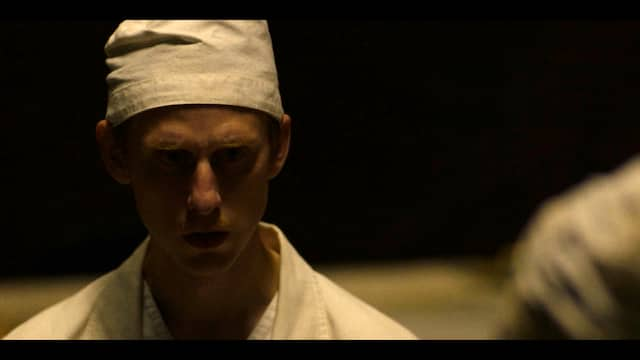“The Sopranos” Episode 4 – “Meadowlands”

The fourth episode of the groundbreaking HBO series “The Sopranos” is titled “Meadowlands,” and it’s an episode that offers audiences a layered look into the intricate balance of Tony Soprano’s two worlds: his mafia life and his family life. At the heart of this episode lies the juxtaposition of these two universes and the consequences and implications of their intersection.
Plot Dynamics:
“Meadowlands” is notable for a few key plot elements. Most central is Tony’s realization of how his psychiatric sessions with Dr. Melfi are beginning to leak into the larger mob community. The unease and paranoia are palpable, particularly after Tony spots one of his mob associates, Vin Makazian, stalking his therapist. This brings forth a major theme of the series: the intersection of vulnerability and power.
Another narrative thread involves Tony’s son, A.J., discovering the truth about his father’s “profession” after a schoolyard altercation. His realization is juxtaposed against Tony’s own grappling with his identity, showing two generations of Sopranos coming to terms with their family legacy.
Character Details and Development:
In this episode, James Gandolfini’s portrayal of Tony is both nuanced and profound. He manages to oscillate between a figure of dominance within the mob world and a vulnerable, almost childlike figure when confronted with the realities of therapy. Dr. Jennifer Melfi, played by Lorraine Bracco, continues to maintain her professional demeanor, yet we can see subtle cracks in her façade, particularly when she realizes she’s being watched and possibly even in danger because of her association with Tony.
Robert Iler’s A.J. takes more of a center stage in this episode. As he begins to grapple with the weight of the Soprano legacy, Iler manages to beautifully capture the innocence, confusion, and anger of a teenager being forced to grow up too quickly.
Behind-the-Scenes Details:
David Chase, the show’s creator, had initially conceived “The Sopranos” as a movie. However, as the series took shape, episodes like “Meadowlands” helped solidify its reputation for cinematic storytelling on television. This was new territory for TV, and the level of complexity in character development and narrative was unparalleled for its time.
Interestingly, James Manos Jr., who wrote the episode, was relatively new to the mob-genre. This brought a fresh perspective, allowing the story to be more than just about the mob, but about universal themes of identity, family, and the quest for power and respect.
Director John Patterson, who helmed multiple episodes of the series, approached this episode with a meticulous attention to detail. The scenes, particularly the therapy sessions, have a claustrophobic feel. This was intentional, designed to mirror Tony’s increasing sense of being trapped by his circumstances.
Impact and Legacy:
“Meadowlands” is not just an episode about the mafia, therapy, or family. It’s about the larger American dream and how, sometimes, that dream can become a nightmare. The show tapped into something deeply resonant about the late 20th-century American experience.
In this episode, Tony’s struggles mirror the larger existential questions of identity and purpose. His journey is not just that of a mob boss, but of every person trying to find meaning in a rapidly changing world. The brilliance of “The Sopranos” and, in particular, “Meadowlands,” lies in its ability to take the specific and make it universal.
“Meadowlands” remains a testament to the show’s early promise and its ability to delve deep into the psyche of its characters, setting the stage for the myriad of complex, character-driven dramas that would follow in its wake. The episode, with its blend of dark humor, profound introspection, and the stark realities of mob life, exemplifies the very essence of what made “The Sopranos” not just a good show, but a groundbreaking piece of American television.




